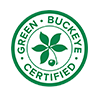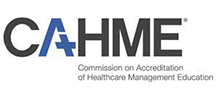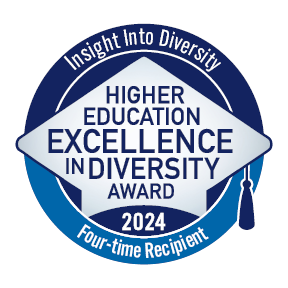Distinctive, Innovative and Influential Research
Address public health challenges through nationally leading research to substantially increase the societal impact of the college
|
- Expand and improve interdisciplinary research collaborations across the college’s divisions, university, locally, nationally and internationally
- Develop and support faculty and students to produce and disseminate influential public health research and innovation, advancing the public health conversation
- Increase and diversify the college’s external research funding
- Provide innovative operating support, infrastructure and physical space to enhance research productivity and reduce administrative and logistical barriers to successful research
|
- National research rankings
- Grant funding with CPH PI or multiple PI
- Number of laws, regulations, or best practice guidelines modified as a result of research findings
- Number of publications in top quartile journals
|
Educational Excellence and Innovation
Develop career-ready professionals through comprehensive and contemporary nationally- ranked programs
|
- Implement modernized, interdisciplinary curricula to educate and train students on emerging and critical public health issues including the social determinants of health and social justice, fostering a culture of engagement and advocacy
- Offer accessible education and training through innovative platforms and learning experiences to attract and engage diverse cohorts of new and non-traditional learners
- Strengthen existing and develop new competency-based academic programs that translate application of public health knowledge, skills and attitudes into community-applied practice
- Prepare students for successful leadership and impactful careers through an immersive learning environment and a robust career and skills development program
- Formalize college-wide procedures and policies to support the continuous development of teaching excellence
- Leverage alumni expertise and networks to provide students access to mentorships, career opportunities and enhanced course content
|
- Diversity of degree program applicants, admits and matriculants
- Rubric criteria measures of degree program applicants, admits and matriculants
- Degree program retention rates
- Degree program graduation rates, including time-to-degree
- Degree program graduates’ applicable employment rates, including pursuit of full-time advanced education
- Employer feedback on career readiness competencies of CPH graduates
|
Engagement and Impact
Partner with communities and health departments across Ohio and beyond to grow evidence-informed practices, reduce health inequities and improve population health
|
- Improve organizational structure to guide, track and leverage the college’s community engagement programs and practices
- Expand, sustain and steward mutually beneficial relationships and effective partnerships locally, nationally and internationally to address health inequities and public health challenges
- Establish advocacy and other practices with focus on equity, inclusion and social rights to advance population health and the national public health conversation
|
- Number of publications that meet CBPR criteria
- Increase in activities with CPHP and HOPES
- Variety and levels of partnerships including MOUs established
- Faculty/Staff/Students serving on community and org boards; local national, international
|
Culture and Citizenship
Foster a culture of engaged connection, sustained through support and appreciation of a diverse college community
|
- Enhance a welcoming and inclusive environment that attracts, retains and supports faculty, staff and students from diverse backgrounds by offering, prioritizing and valuing programs and trainings that address equity throughout the college
- Sustain active citizenship and shared sense of community among faculty, staff, students and alumni through strong participation and engagement in programs, events, mentoring and networking
- Strengthen the academic and professional advancement of historically marginalized faculty, staff and students through scholarships, grants and development trainings and programs
|
- Employee engagement survey
- Student experience survey
- Faculty, staff and student event participation
- Retention rates of diverse students (gender, race, ethnicity, first generation, LGBTQ+, people with disabilities)
- Completion of professional development certificate of inclusion: faculty, staff, students
|
Recruiting and Retaining Leading and Diverse Talent
Attract, engage and support top faculty, staff and student talent, enabling them to perform at the highest levels
|
- Implement evidence-based recruitment processes that attract and recruit a diverse and world-class talent pool targeting areas of aspirational growth and promoting interdisciplinary collaboration
- Enhance onboarding processes to create an experience that effectively acclimates incoming talent to their role and the college
- Develop a robust faculty and staff mentorship program, including leadership development, that inspires college talent to solve critical public health issues and creates a pipeline for future leaders
- Empower individuals in their roles and create flexibility for people to innovate in their daily work, improve organizational effectiveness and increase personal satisfaction
- Implement a faculty and division incentive plan that offers guidance and support for excellence in engagement, teaching and research
- Recruit and retain those who seek opportunities to advance the public health conversation through action, including engaging in media interviews, presenting commentary, offering presentations and sitting on expert panels
|
- Number of promotions to leadership positions/career progression
- Diversified portfolio of grant funding
- Employee engagement survey (survey needs to be developed)
- %URM in faculty, staff and student populations
|
Stewardship and Operational Excellence
Advance growth and ensure financial sustainability to achieve the college’s aspirational goals
|
- Implement financial and operational transparency across divisions and the college
- Leverage strong alumni network and increased awareness of critical public health issues to expand philanthropic support
- Expand revenue growth and be good stewards to grow and secure financial future of the college
- Bring together a diverse group of alumni leaders to offer counsel, create pathways to financial support and build external partnerships
|
- Philanthropic dollars
- Alumni participation at events, programs and through philanthropic gifts
- Operating margin
- % revenue from alternative sources
- Revenue from degree enhancement and continuing education programs
- Revenue from credit and non-credit programs
|




